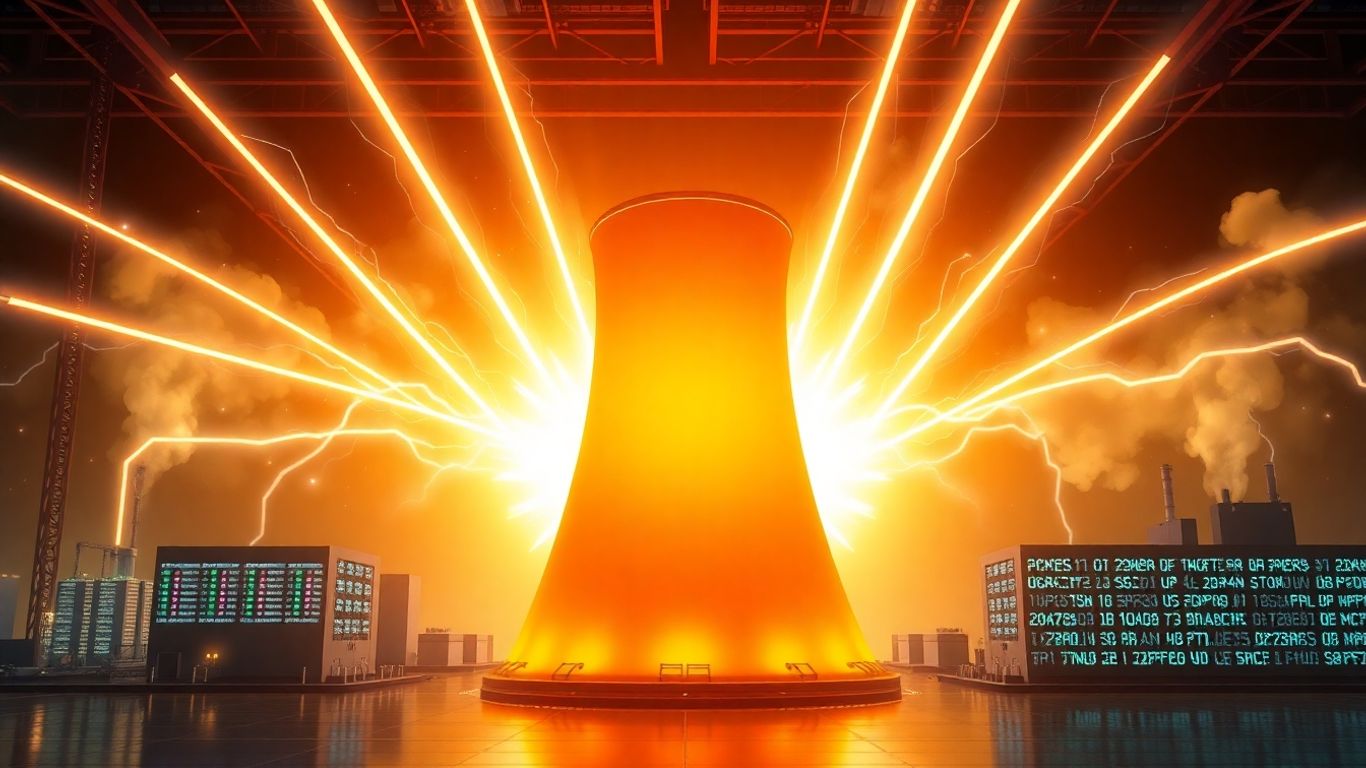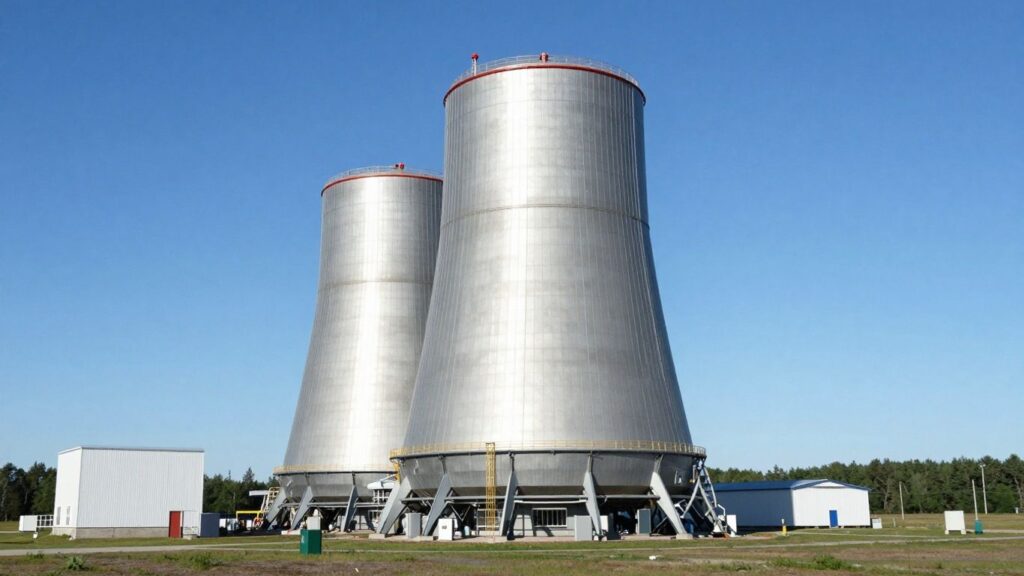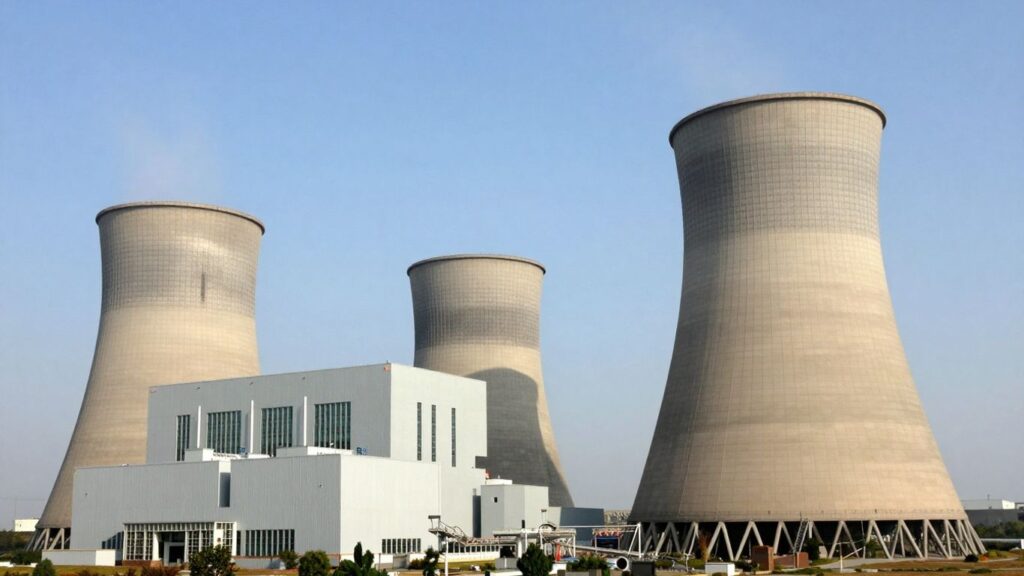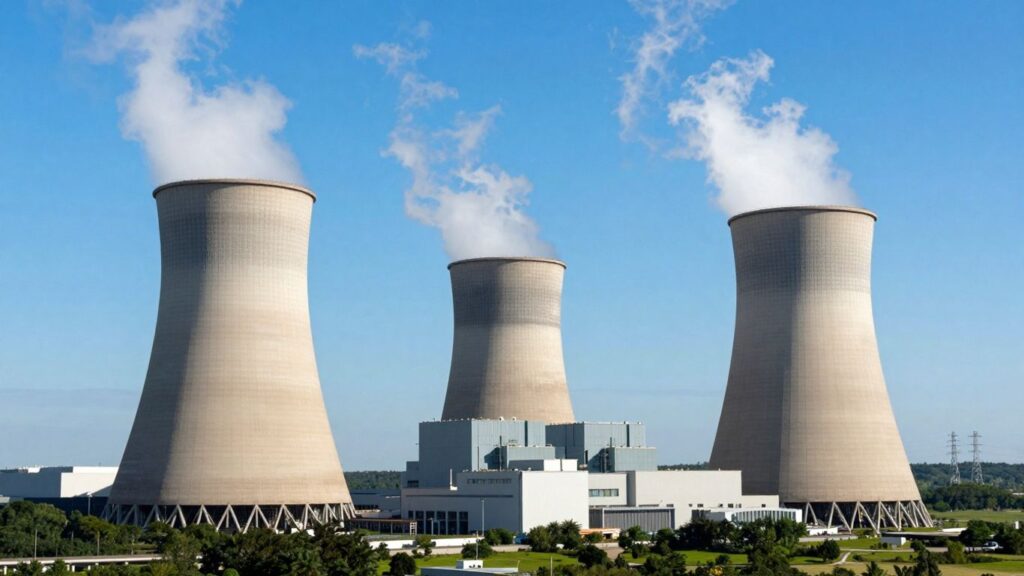The United States is embarking on its most ambitious nuclear energy initiative to date, aiming to deploy 6 gigawatts of power through Small Modular Reactors (SMRs). This significant expansion is designed to meet the escalating energy demands of cutting-edge industries, including artificial intelligence and large-scale manufacturing.
Key Takeaways
- The U.S. plans to activate 6 GW of power using NuScale SMR technology.
- This initiative aims to support energy-intensive sectors like AI and chip manufacturing.
- ENTRA1 Energy and the Tennessee Valley Authority (TVA) are partnering on this project.
- SMRs offer a scalable, carbon-free, and flexible energy solution.
Ambitious Nuclear Deployment
ENTRA1 Energy, a global power production platform, has entered into an agreement with the Tennessee Valley Authority (TVA) to develop up to 6 gigawatts of capacity utilizing NuScale’s SMR technology. This project represents a major step forward in the nation’s nuclear power strategy, focusing on providing a consistent and reliable energy supply for industries with substantial power requirements.
SMRs: The Future of Nuclear Energy
Each of the six planned plants will feature NuScale modules, engineered to deliver continuous, carbon-free electricity. These reactors have received certification from the U.S. Nuclear Regulatory Commission, highlighting their safety and adaptability to varying energy demands. A key advantage of SMRs is their modular construction, which significantly shortens deployment timelines compared to traditional nuclear power plants.
Designed with passive cooling systems and the potential for underground installation, SMRs optimize space and minimize operational risks. Their scalable generation capacity, up to 924 megawatts per plant, makes them an attractive option for energy-intensive infrastructures such as AI data centers.
A Global Energy Model
The collaboration between NuScale and ENTRA1 establishes an international platform for the commercial deployment of SMRs, with ENTRA1 serving as the exclusive operator. The TVA will procure the electricity generated across its seven-state service area. This model is intended to accelerate the adoption of modern nuclear sources, bolstering national security and energy independence.
The program also envisions broader applications for SMR technology, including hydrogen production and water desalination. This commitment to SMRs aligns with national strategic goals to build a resilient domestic energy supply capable of meeting growing global demand, positioning SMR technology as a crucial element for balancing energy reliability and sustainability.












